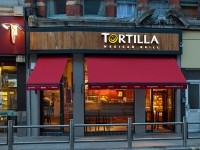Finding finance in hospitality: The banks

But it’s not all bad news. In recent years, the Government has put banks under an increased pressure to lend to businesses rather than to property. And the positive effects are already starting to show: official lending figures from the Bank of England found that lending to small and medium-sized businesses increased by £238m last month - the biggest rise since records began in May 2011.
This follows the foundation of the Leisure Fund from RBS– a £150m pot made available to all hospitality and leisure businesses, allowing them to take out a loan of £100k-£10m on a secured or unsecured basis.
So, banks are lending. But, amidst a beleaguered economic backdrop, what has certainly changed is the level of scrutiny a business will now face before receiving any finance. And perhaps rightly so, as Andrew Taylor, the head of leisure for RBS and NatWest Commercial Banking, points out.
“We might ask more questions now but that’s only right in a period of economic uncertainty where businesses face additional pressures,” says Taylor. “The premise on which we base our lending decisions has not changed - as a bank we just need to be confident that any business that approaches us for credit can repay the debt they wish to take on.
"We carried research out earlier this year which found 48 per cent of leisure firms expected their business to grow in 2013, with over 70 per cent feeling optimistic – the Leisure Fund is their to help these businesses invest and stay competitive."
Cash flow is key
It is also important not to generalise. When looking at the location of a business, for example, central London and the rest of the UK are incomparable when it comes to the financial options available. Likewise, a successful hotelier with a proven track record is much more likely to secure finance than a start-up with no previous experience in hospitality.
But the key to securing funding from the banks remains the same for any hospitality business: you must talk to the bank at the earliest opportunity and have a realistic cashflow forecast set upon a strong business plan.
“The earlier a business talks to their bank about their growth plans the better,” advises Taylor. “This will identify any additional requests for information that they will need to see in order to approve the application, and it will ensure the funds are ready when the business needs them.
“When a bank reviews an application for credit they are looking for reassurance that the business can afford to service the debt they wish to take on, so a sensible cash flow forecast is essential, backed up by a solid business plan.”
Business: Tortilla
Founder: Brandon Stephens
Funding secured: £2.25m from Santander Corporate Banking
Used for: UK expansion
Since its founding in 2007, fast-casual Mexican group Tortilla went from strength to strength. Starting the year with nine UK sites, the group’s founder Brandon Stephens wanted to move on to the next stage of its development, and was seeking finance to do so.
Santander’s recent debt facility, combined with an earlier £3.5m investment from Quilvest Private Equity in December 2011, provided Tortilla with unrivalled financing among the UK’s burgeoning fast-casual Mexican restaurant operators. It is now on track to open six or seven new restaurants in 2013 with a similar number planned for next year.
As Stephens explains: “The finance from Santander provides us with the capital necessary to execute our objectives for growth and will allow us to pursue a number of exciting expansion initiatives within the M25 as well as outside of London.”
Stuart Donald, director at Santander Corporate Banking, adds: “We are excited to be able to support Tortilla through their next phase of growth. The strong management team and proven business model makes Tortilla an ideal fit with Santander’s commitment to support strong and viable UK companies as part of our wider aim to become the SME bank of choice.”
Business: The Belfry
Owners: KSL Capital Partners
Funding secured: £25m from Lloyds Bank Commercial Banking
Used for: A major refurb of the West Midlands hotel’s 324 bedrooms and public areas
Iconic hotel, golf and leisure resort The Belfry was bought by the US private equity firm KSL early last year. Wanting the property to undergo a comprehensive renovation, the new owners turned to Government-backed Funding for Lending Scheme.
The Scheme was launched last August in an attempt to boost lending and get the economy expanding. Banks and building societies are allowed to borrow money cheaply from the Bank of England, providing they loan that money to individuals of businesses – The Belfry was one of the beneficiaries.
“This ambitious refurbishment plan forms part of our commitment to provide our global customer base with truly first-class standards of luxury, service and amenities,” says the hotel’s managing director Lynn Hood. “Ultimately, it’s about restoring this iconic venue to its former standing as a leading European gold resort.
“The team at Lloyds Bank have demonstrated their commitment to helping us realise our long-term ambitions for the Belfry’s refurbishment. We are thrilled to have the right banking partner in place to assist us with these goals.”
Murray Stewart, relationship director at Lloyds Commercial Banking in Birmingham adds: “The Belfry is a great representative of the type of UK mid-market business that we are keen to support. Such businesses are fundamental drivers in our economic recovery and we are committed to working with them to provide the backing they need to drive growth and development – this includes using a range of funding options such as Funding for Lending.”
Conclusion: Top tips
Whether you’re a start-up business or an expanding concept, there are a number of boxes that must be ticked if you’re to stand any chance receiving any support from the banks: -
- Preparation is vital. Your business story and financial numbers must make complete sense. The more thought you give this, the better. Banks don’t need many excuses not to do a deal in the current market.
- A good track-record makes all the difference. If you’ve got good credentials the bank will be a lot more comfortable with everything that’s being said – Barclays, for example, looks at the management capability of a business as equating to something between 30 and 35 per cent of the overall proposition.
- Think about your five-year plan. What are you looking to achieve and how do you think a bank can help you get there? A bank will look at every single request individually - there isn’t a specific formula, but the bank needs to be sure that the business can repay the debt.
- What's your USP? And who are your main competitors? These are the things a bank will want to know when considering any financial support.
- Build a relationship with the bank. Think about the use of banking ancillary services – if you have a number of sites, including the use of the bank’s own card terminals within them could be a deal-breaker.
… And remember, a ‘no’ from the bank doesn’t necessarily mean you can’t receive any finance to set up or grow your hospitality business. Take a read of all parts of this Special Featureto explore the different ways - from using your own cashto crowd-funding – to build your business.

















